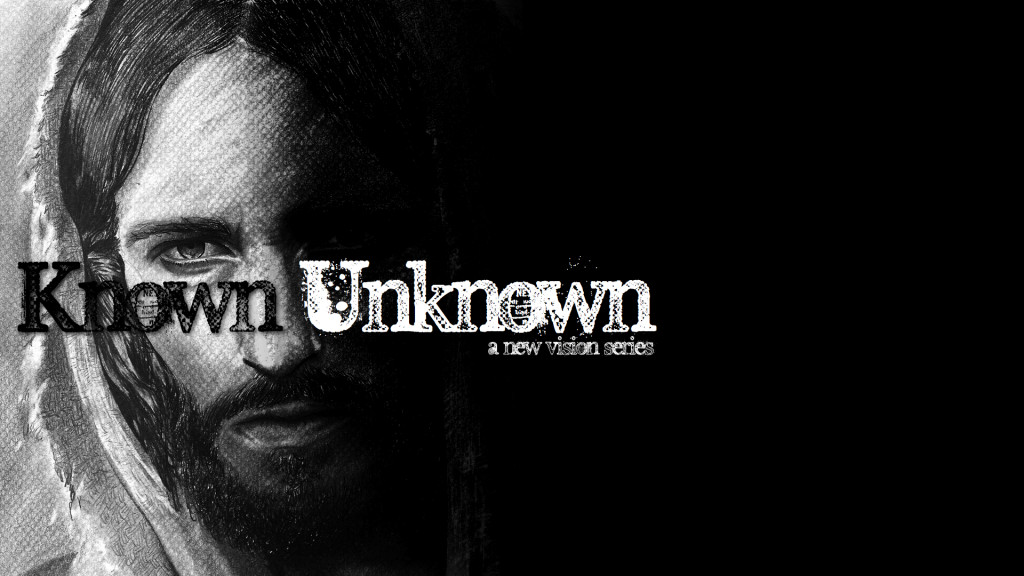A number of years ago, as a youth pastor, I delivered a challenging message to the youth of my church. The students had just finished singing songs, professing their love for God. As I stood in front the room, the spiritual feeling that only true worship brings was still evident in the room.
 “I have a word for you,” I told them. “I felt it as we sang. I don’t think this youth group loves Christ enough. There’s a lot of half-hearted people in this room and it needs to stop. So from now on you need to make a commitment to come every Wednesday night. if you can’t come every Wednesday then don’t bother coming at all.”
“I have a word for you,” I told them. “I felt it as we sang. I don’t think this youth group loves Christ enough. There’s a lot of half-hearted people in this room and it needs to stop. So from now on you need to make a commitment to come every Wednesday night. if you can’t come every Wednesday then don’t bother coming at all.”
The students sat stunned in their chairs. All except for one. From the front row I could hear Trista agreeing with my every word. “Amen,” she said.
I continued. “And I’m tired of seeing people only raise one hand to the Lord in worship. If you can’t raise both hands than you’re half-hearted. From now on raise both hands or don’t raise them at all.”
I could see students start to clam up. But good old Trista there in the front row kept right on saying, “amen, amen.”
“You need to bring you’re bibles to Church. How can you say that you love God if you don’t love his word.”
Students started shaking their heads and I heard some quietly say “no.” And there Trista was “amen, amen, amen!”
“No!” I said. I had been playing and sweet Trista had walked right into the trap. (love you Trista!)
Rules Lead to Rebellion
What I wanted to demonstrate is that rules breed rebellion. When told to do something our immediate reaction is to respond, “the hell I will.” But all too often our devotions to the Lord, things like prayer, worship and reading the bible, turn from something that we desire to do into a rule that must be followed. And the devotions that we started as a simple demonstration of love for our Lord become something we despise.
This is the trouble with devotions that good things started with right intentions become a burden to bare rather than a blessing to share. This is the struggle that Paul finds himself in in Romans 7
But sin, seizing the opportunity afforded by the commandment, produced in me every kind of covetous desire. For apart from law, sin is dead. Once I was alive apart from law; but when the commandment came, sin sprang to life and I died. I found that the very commandment that was intended to bring life actually brought death. For sin, seizing the opportunity afforded by the commandment, deceived me, and through the commandment put me to death…
God’s commandment’s when brought against our flesh breeds rebellion in us. This is a trap from which it seems we cannot recover. “What a wretched man I am! Who will rescue me from this body of death?” Paul asks in verse 24.
God’s Love Sets Us Free
But Paul has the answer. We find it in Romans 8 – one of the greatest, if not the greatest chapters in all the Bible. It’s worth quoting in full.
Therefore, there is now no condemnation for those who are in Christ Jesus, because through Christ Jesus the law of the Spirit of life set me free from the law of sin and death. For what the law was powerless to do in that it was weakened by the sinful nature, God did by sending his own Son in the likeness of sinful man to be a sin offering. And so he condemned sin in sinful man, in order that the righteous requirements of the law might be fully met in us, who do not live according to the sinful nature but according to the Spirit.
Those who live according to the sinful nature have their minds set on what that nature desires; but those who live in accordance with the Spirit have their minds set on what the Spirit desires. The mind of sinful man is death, but the mind controlled by the Spirit is life and peace; the sinful mind is hostile to God. It does not submit to God’s law, nor can it do so. Those controlled by the sinful nature cannot please God.
You, however, are controlled not by the sinful nature but by the Spirit, if the Spirit of God lives in you. And if anyone does not have the Spirit of Christ, he does not belong to Christ. But if Christ is in you, your body is dead because of sin, yet your spirit is alive because of righteousness. And if the Spirit of him who raised Jesus from the dead is living in you, he who raised Christ from the dead will also give life to your mortal bodies through his Spirit, who lives in you.
Therefore, brothers, we have an obligation— but it is not to the sinful nature, to live according to it. For if you live according to the sinful nature, you will die; but if by the Spirit you put to death the misdeeds of the body, you will live, because those who are led by the Spirit of God are sons of God. For you did not receive a spirit that makes you a slave again to fear, but you received the Spirit of sonship. And by him we cry, Abba, Father. The Spirit himself testifies with our spirit that we are God’s children. Now if we are children, then we are heirs— heirs of God and co-heirs with Christ, if indeed we share in his sufferings in order that we may also share in his glory.
I consider that our present sufferings are not worth comparing with the glory that will be revealed in us. The creation waits in eager expectation for the sons of God to be revealed. For the creation was subjected to frustration, not by its own choice, but by the will of the one who subjected it, in hope that the creation itself will be liberated from its bondage to decay and brought into the glorious freedom of the children of God. We know that the whole creation has been groaning as in the pains of childbirth right up to the present time. Not only so, but we ourselves, who have the firstfruits of the Spirit, groan inwardly as we wait eagerly for our adoption as sons, the redemption of our bodies. For in this hope we were saved. But hope that is seen is no hope at all. Who hopes for what he already has? But if we hope for what we do not yet have, we wait for it patiently.
In the same way, the Spirit helps us in our weakness. We do not know what we ought to pray for, but the Spirit himself intercedes for us with groans that words cannot express. And he who searches our hearts knows the mind of the Spirit, because the Spirit intercedes for the saints in accordance with God’s will.
And we know that in all things God works for the good of those who love him, who have been called according to his purpose. For those God foreknew he also predestined to be conformed to the likeness of his Son, that he might be the firstborn among many brothers. And those he predestined, he also called; those he called, he also justified; those he justified, he also glorified. What, then, shall we say in response to this? If God is for us, who can be against us? He who did not spare his own Son, but gave him up for us all— how will he not also, along with him, graciously give us all things? Who will bring any charge against those whom God has chosen? It is God who justifies. Who is he that condemns? Christ Jesus, who died— more than that, who was raised to life— is at the right hand of God and is also interceding for us. Who shall separate us from the love of Christ? Shall trouble or hardship or persecution or famine or nakedness or danger or sword? As it is written: For your sake we face death all day long; we are considered as sheep to be slaughtered. No, in all these things we are more than conquerors through him who loved us. For I am convinced that neither death nor life, neither angels nor demons, neither the present nor the future, nor any powers, neither height nor depth, nor anything else in all creation, will be able to separate us from the love of God that is in Christ Jesus our Lord.
God’s free gift of His Son has taken away the commandment and given us a new spirit which cries out in love and thankfulness to God. Be mindful of your motivations. Check your heart. Remember this is why you do your devotions.
What do you think?
Originally posted February 18th, 2008.



















